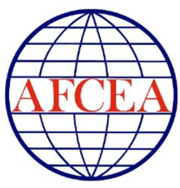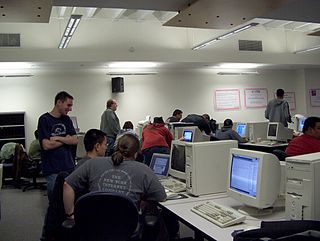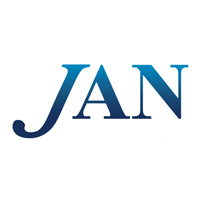
Computer magazines are about computers and related subjects, such as networking and the Internet. Most computer magazines offer advice, some offer programming tutorials, reviews of the latest technologies, and advertisements.

The British Computer Society (BCS), branded BCS, The Chartered Institute for IT, since 2009, is a professional body and a learned society that represents those working in information technology (IT), computing, software engineering, computer engineering and computer science, both in the United Kingdom and internationally. Founded in 1957, BCS has played an important role in educating and nurturing IT professionals, computer scientists, software engineers, computer engineers, upholding the profession, accrediting Chartered IT Professional (CITP) and Chartered Engineer (CEng) status, and creating a global community active in promoting and furthering the field and practice of computing.

Web conferencing is used as an umbrella term for various types of online conferencing and collaborative services including webinars, webcasts, and web meetings. Sometimes it may be used also in the more narrow sense of the peer-level web meeting context, in an attempt to disambiguate it from the other types known as collaborative sessions. The terminology related to these technologies is exact and agreed relying on the standards for web conferencing but specific organizations practices in usage exist to provide also term usage reference.

The Society of Petroleum Engineers (SPE) is a 501(c)(3) not-for-profit professional organization.
Microsoft Office Live Meeting is a discontinued commercial subscription-based web conferencing service operated by Microsoft. Live Meeting included software installed on client PCs and used a central server for all clients to connect to. The service was shut down on December 31, 2017. Microsoft now produces Skype for Business which is an enterprise Unified Communications product, that can be rolled out either on-premises or in the cloud.

A users' group is a type of club focused on the use of a particular technology, usually computer-related.

The Boston Computer Society (BCS) was an organization of personal computer users, based in Boston, Massachusetts, U.S., that ran from 1977 to 1996. At one point, it was the largest such group in the world, with regular user group meetings, many publications, permanent offices in Boston, and hosting major product announcements, including the East Coast release of the Apple Macintosh in 1984.

Computer Society of India is a body of computer professionals in India. It was started on 6 March 1965 by a few computer professionals and has now grown to be the national body representing computer professionals. It has 72 chapters across India, 511 student branches, and 100,000 members.

AFCEA International, established in 1946, is a nonprofit membership association serving the military, government, industry, and academia as a forum for advancing professional knowledge and relationships in the fields of communications, information technology, intelligence and global security. AFCEA provides a forum for military, government, academic and industry communities with altogether more than 30,000 members. AFCEA supports local chapters, sponsors events, publishes a magazine, promotes STEM education and provides member benefits.

The Association for Applied Psychophysiology and Biofeedback (AAPB) was founded in 1969 as the Biofeedback Research Society (BRS). The association aims to promote understanding of biofeedback and advance the methods used in this practice. AAPB is a non-profit organization as defined in Section 501(c)(6) of the Internal Revenue Service Code.
ACM SIGACCESS is the Association for Computing Machinery's Special Interest Group on accessible computing, an interdisciplinary group of academic and industrial researchers, clinicians and rehabilitation personnel, policy makers, end users, and students to develop technologies for use by people with disabilities.

The American Payroll Association (APA) is a professional association for individuals responsible for processing company payrolls. The Association conducts payroll training courses and seminars on a yearly basis and publishes a library of payroll resource texts and newsletters. APA has approximately 21,000 members, 121 APA-affiliated local chapters, and registered lobbyists based in Washington, D.C.

A Linux User Group or Linux Users' Group (LUG) or GNU/Linux User Group (GLUG) is a private, generally non-profit or not-for-profit organization that provides support and/or education for Linux users, particularly for inexperienced users. The term commonly refers to local groups that meet in person but is also used to refer to online support groups that may have members spread over a very wide area and that do not organize, or are not dependent on, physical meetings. Many LUGs encompass FreeBSD and other free-software / open source Unix-based operating systems.

The Job Accommodation Network (JAN) is a service provided by the United States Department of Labor's Office of Disability Employment Policy (ODEP). JAN is one of several ODEP technical assistance centers. JAN facilitates the employment and retention of workers with disabilities by providing employers, employment providers, people with disabilities, their family members, and other interested parties with information on job accommodations, entrepreneurship, and related subjects. JAN's efforts are in support of the employment, including self-employment and small business ownership, of people with disabilities.

The Task Force on Rebooting Computing (TFRC), housed within IEEE Computer Society, is the new home for the IEEE Rebooting Computing Initiative. Founded in 2013 by the IEEE Future Directions Committee, Rebooting Computing has provided an international, interdisciplinary environment where experts from a wide variety of computer-related fields can come together to explore novel approaches to future computing. IEEE Rebooting Computing began as a global initiative launched by IEEE that proposes to rethink the concept of computing through a holistic look at all aspects of computing, from the device itself to the user interface. As part of its work, IEEE Rebooting Computing provides access to various resources like conferences and educational events, feature and scholarly articles, reports, and videos.

Korea TESOL is the largest multicultural English teachers association in South Korea, organized as a nonprofit scholarly/professional society under the National Research Foundation of Korea and local tax laws since 1993.
The Midwest Archives Conference (MAC) is a regional archivist association serving the Midwestern region of the United States. MAC was founded in 1972 and held its first fall meeting in the Bismarck Hotel in Chicago, Illinois. While MAC has over 800 members from various states and countries, the MAC region is composed of Illinois, Indiana, Iowa, Kansas, Kentucky, Michigan, Minnesota, Missouri, Nebraska, North Dakota, South Dakota, Ohio, and Wisconsin. MAC holds annual conferences with roundtables, panels, and workshops targeted towards archivists, curators, and librarians. Conferences have addressed such topics as federal funding for archives, documenting social history through the records of various ethnic groups, conservation, and data reporting standards for archival institutions. Other presentations have discussed how an archives can tie into their parent institution's anniversaries and big events, or how to make popular music collections a part of your archives. Annual meetings include informational sessions and notable plenary speakers, such as Pulitzer Prize winning author Leon Dash, who spoke at the 2006 Annual Meeting in Bloomington, Illinois. Annual conferences also often include themes, such as "Documenting Rural America" (the theme of the 1986 conference held in Hudson, Wisconsin.
The Boston Alliance of Gay, Lesbian, Bisexual, and Transgender Youth (BAGLY) is a non-profit organization located in Boston that works to protect, expand, and raise awareness for the rights of gay, lesbian, bisexual, transgender, queer, and questioning youth (LGBTQ+). Founded by LGBTQ+ youth in 1980, it adopts a youth-led, adult-supported approach to better meet the varied needs of a wide demographic of LGBTQ+ youth in Greater Boston. BAGLY's stated goals are to create, sustain, and advocate for socially just and intersectional programs, policies, and services for the LGBTQ+ youth community, which they achieve through frequent community-based leadership development, health promotion, and social support programs.
The National Federation of State Poetry Societies, Inc. (NFSPS) is a national organization of state poetry societies in the United States. It was established in 1959 and now includes affiliates in 32 U.S. states. The federation hosts conferences and maintains awards and educational programs related to poetry.
The Ohio Poetry Association (OPA) is a non-profit state-level poetry association in the U.S. state of Ohio, which is affiliated with the National Federation of State Poetry Societies (NFSPS). The organization promotes poetry, conducts monthly and annual contests, publishes poetry books and organizes periodic meetings, workshops and festivals.